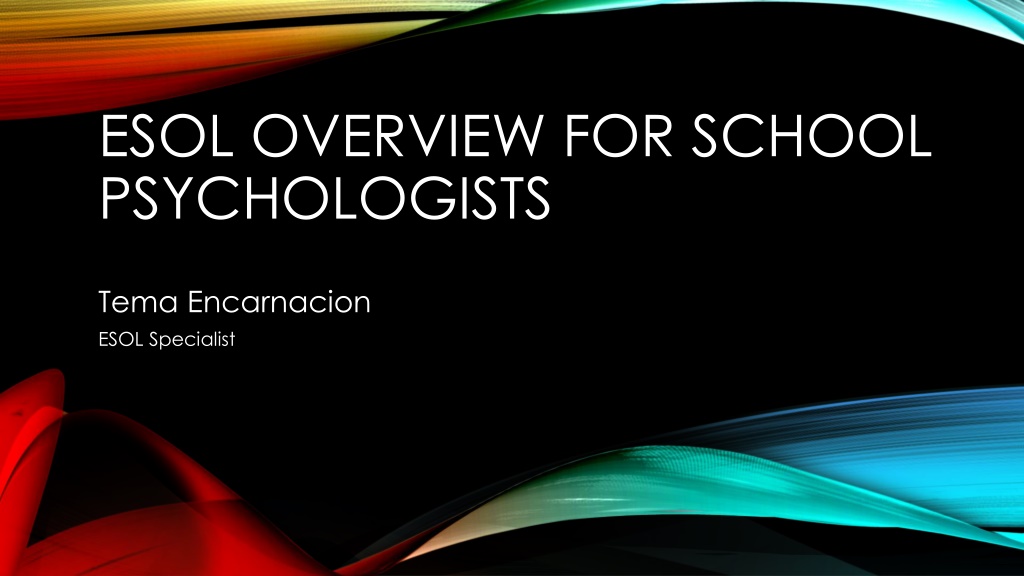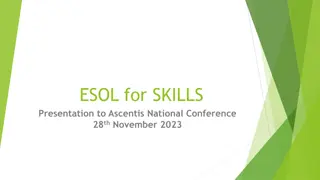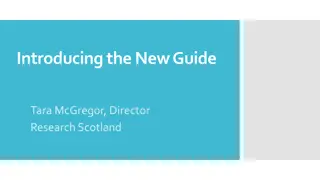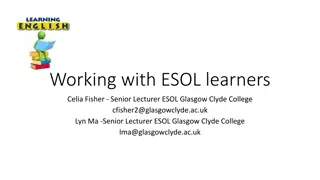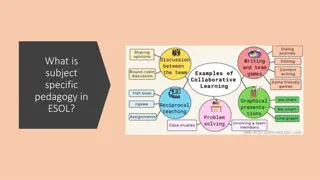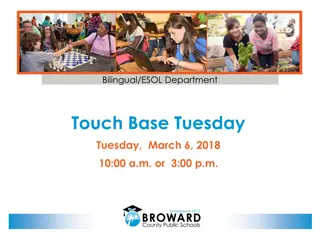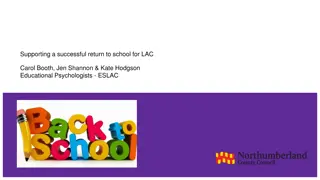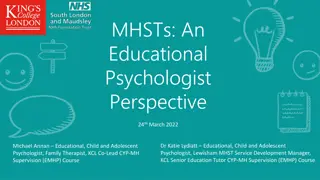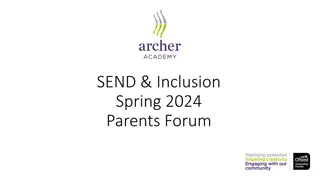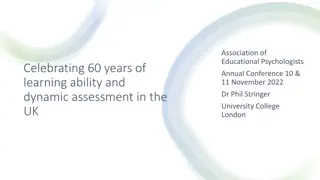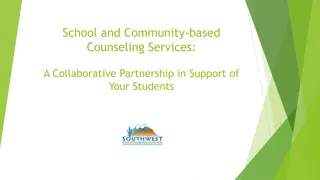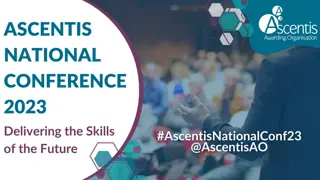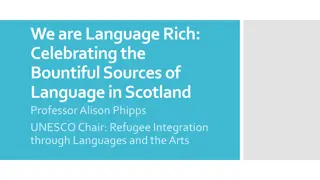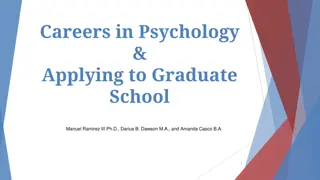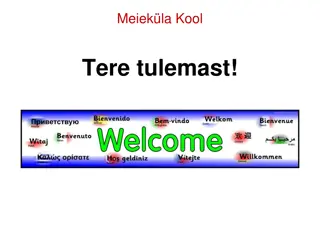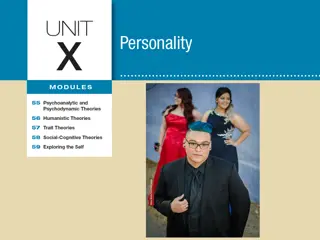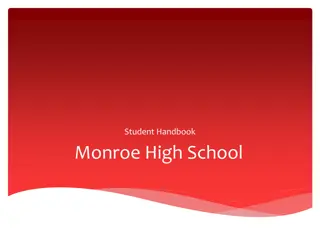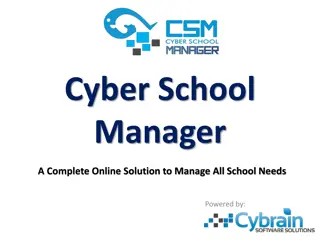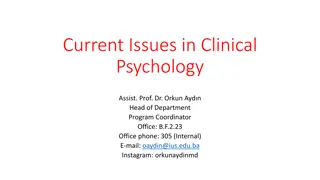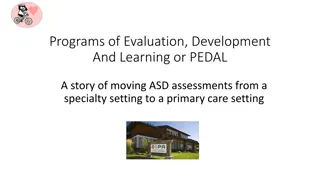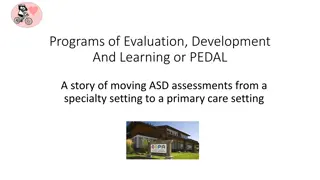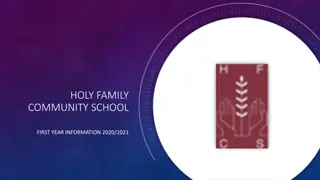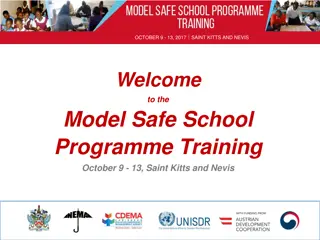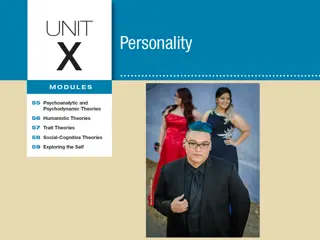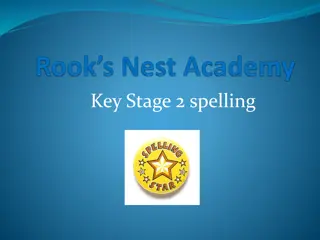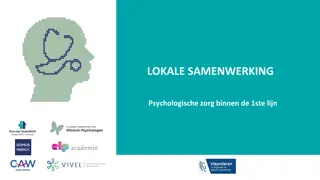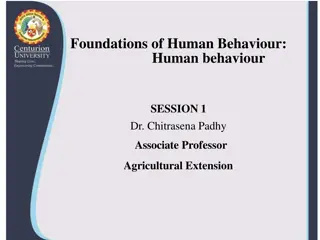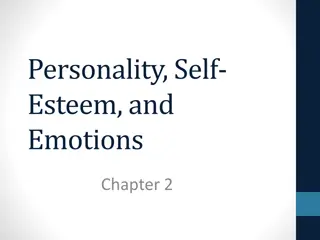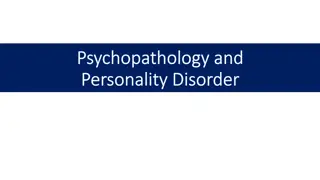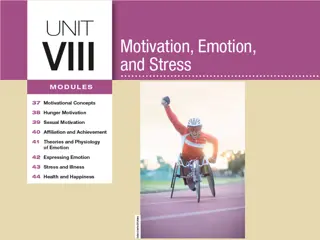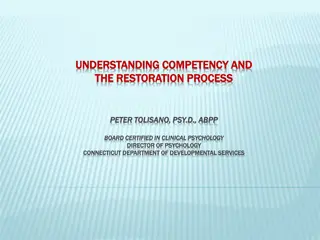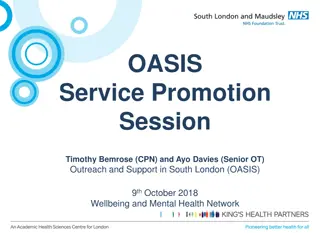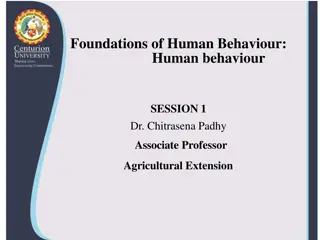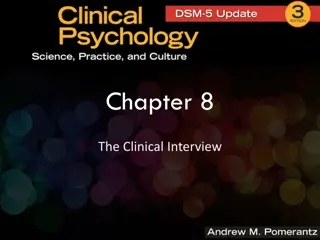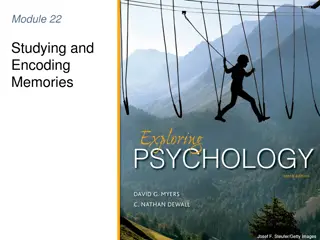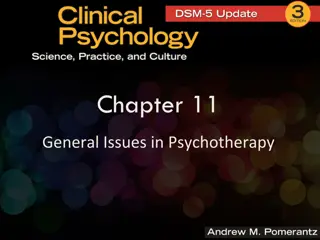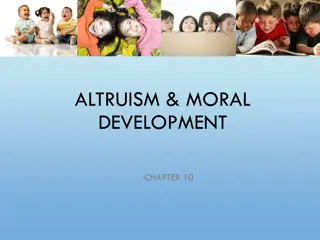Understanding ESOL: A Comprehensive Overview for School Psychologists
Explore the intricate landscape of English for Speakers of Other Languages (ESOL) in the educational setting, covering key aspects such as student demographics, language diversity, DACA criteria, legal frameworks, and the Maryland Dream Act. Gain insights into the challenges and opportunities of supporting English learners from over 100 countries who speak 90 different languages.
Download Presentation

Please find below an Image/Link to download the presentation.
The content on the website is provided AS IS for your information and personal use only. It may not be sold, licensed, or shared on other websites without obtaining consent from the author. Download presentation by click this link. If you encounter any issues during the download, it is possible that the publisher has removed the file from their server.
E N D
Presentation Transcript
ESOL OVERVIEW FOR SCHOOL PSYCHOLOGISTS Tema Encarnacion ESOL Specialist
DID YOU FIND YOUR GROUP? 1. The majority of refugees in BCPS are coming from: Burma(Myanmar), Congo and Syria 2. Many of the unaccompanied minors come from these Central American countries: El Salvador, Guatemala and Honduras 3. Students born in which country account for the majority of English Learners in BCPS? United States 4. This language is the most widely spoken first language among students in the BCPS: Spanish 5. These language are mutually intelligible: Hindi and Urdu 6. These are some of the languages spoken by BCPS students who are from Africa: Igbo, Hausa, Yoruba, Mandinka, Swahili, English, Tigrinya, Amharic 7. These are some of the languages spoken by BCPS students who are from India: Hindi, Malayalam, Gujarati, Telegu, Kannada, Punjabi, Marati, Tamil, Bengali, Oriya 8. Students from these countries speak a non-standard dialect of English and qualify for ESOL services: Cameroon, Ghana, Liberia, Trinidad and Tobago, St. Vincent, Nigeria, Barbados, Guyana, Jamaica, Kenya, Uganda
DID YOU FIND YOUR GROUP? What are criteria for DACA. Enter the US before 16thbirthday, high school graduate, under the age of 31 as of 6/15/15, enter the US before June 2007, 10. DACA Deferred action for childhood arrivals 11. IN 2016 BCPS ESOL had the largest growth since 1993. 12. 21% increase in 2016-17 SY 13. In these years, these court cases established equitable access to public education for Els. Lau v. Nichols, 1974, Castaneda v. Pickard, 1978, Plyer v. Doe, 1982 14. These are top 10 languages spoken among English Learners in BCPS. Spanish, Burmese, Urdu, Arabic, Chinese, Nepali, French, Vietnamese, Russian, Yoruba 15. These are the top 10 countries represented among English Learners in BCPS. The United States, El Salvador, Honduras, Myanmar, Guatemala, Mexico, Kenya, Syria, Eritrea 16. These are the components of the Maryland Dream Act. Provides undocumented students with access to in-state tuition. 17. These individuals qualify for the Maryland Dream Act. The individual or his/her parents have paid state income taxes. The individual has attended a Maryland high school for at least three years after the 2005-06 school year. Graduated from a Maryland High School or received a diploma from another state after the 2007-08 school year. Enrolls in college within four years of graduating high school. Signs an affidavit stating that the individual will apply for permanent residency upon becoming eligible. Registered for the selective service (males only). 9.
ESOL OVERVIEW ~6200 Active English Learners ~1200 Reclassified English Learners Represent over 100 countries of origin Speak 90 languages Most represented language? Most represented country?
WHAT IS ESOL? English for Speakers of Other Languages Language instruction across domains and content areas WIDA-APT determines placement Evaluated annually 6 levels of proficiency Accommodations
ROLE OF THE ESOL TEACHER Direct English Instruction Push-in and co-teaching Identify and document accommodations Communicate with content/classroom teachers Provide professional development around second language acquisition
BILINGUAL FAMILY SCHOOL LIAISONS Connect international families with resources Provide workshops for international families Arrange for interpretation services Training for schools and families
ENGLISH LEARNER PLANS Documents the students' English proficiency Documents the instructional and assessment accommodations Developed with the ESOL teacher and content/classroom teachers Often include: Bilingual word-to-word dictionaries Extended time Verbatim reading of text Scribe
IF YOU REALLY KNEW ME... Based on the video, what do you think are some of the needs of ESOL students? How are these needs different/similar to other students? What can we do as a system to help meet the needs of these students?
PROTECTIONS FOR IMMIGRANT STUDENTS Read one of the articles Share the information from your article with your group As a group determine: What are the needs of the immigrant students? How can we address the needs of immigrant students? Share out
STUDENTS RIGHTS School districts must provide all children with equal access to public education at the elementary and secondary levels regardless of immigration status. Districts may not request information with the purpose or result of denying access to public schools on the basis of race, color or national origin. School districts may not prohibit children from enrolling in schools based on their or their parents or guardians' immigration status. Undocumented students have the same right to public education as U.S. citizens and therefore if they meet the criteria the McKinney-Vento Act applies to them Students can attend school from the ages of 5-21 regardless of whether they will meet graduation requirements by their 21stbirthday.
THE WELCOME CENTER Verify the student s address within Baltimore County Educational background interview English language proficiency test Evaluate high school transcripts Complete some of the required paperwork for enrollment at the school (school registration forms) Be referred to a health clinic for immunizations Complete the meal benefit form Be given the opportunity to complete the privacy opt-out form
REQUESTING AN INTERPRETER Attempt initial contact with the family If it becomes clear that an interpreter is necessary after initial contact is made reach out to the Family School Liaison to request interpretation. Check our Wiki for updates on requesting an interpreter as the process changes.
WORKING WITH INTERPRETERS Allow enough time for the interpreting session. Interpreted meetings will take longer than a meeting that does not require an interpreter. Arrange seating so that the interpreter is close to the parent but can also see and hear other participants at the meeting. Have only one person speak at a time and avoid side conversations. If you suspect mis-translation, rephrase your idea. Avoid excessive use of jargon, slang or idioms. Speak clearly and pause for interpretation after every 3 or 4 sentences. Speak directly to the parents in the first person. Make eye contact with the parents.
MORE INFORMATION ESOL Wiki www.tinyurl.com/esolwiki
READINGS Refugee Toolkit for Schools http://www.brycs.org/documents/upload/School-Enrollment.pdf Fearing Deportation, Families Plan For the Worst http://www.npr.org/2017/03/13/519015044/fearing-deportation-families-plan-for-the-worst Plyler v. Doe 30 years later http://immigrationimpact.com/2012/06/15/after-30-years-plyler-v-doe-decision-survives-but-remains-under-attack/ Critics See Chilling Effect in Alabama Immigration Law http://www.nytimes.com/2011/10/28/us/alabama-immigration-laws-critics-question-target.html Understanding and addressing the needs of unaccompanied immigrant minors http://www.apa.org/pi/families/resources/newsletter/2016/06/immigrant-minors.aspx How three schools creatively face the challenge of educating immigrant students https://www.washingtonpost.com/news/answer-sheet/wp/2017/05/05/how-three-schools-creatively-face-the-challenge-of-educating-immigrant-students/?utm_term=.234790e7824b Your child is safe : Schools address deportation fears among immigrant families https://www.washingtonpost.com/local/education/your-child-is-safe-schools-address-deportation-fears-among-immigrant-families/2017/03/19/5f8877ae-09be-11e7-93dc- 00f9bdd74ed1_story.html?utm_term=.e471405703e4 Immigrant and Refugee Children: A Guide for Educators and School Support Staff http://www.tolerance.org/magazine/number-55-spring-2017/feature/immigrant-and-refugee-children-guide-educators-and-school-su
